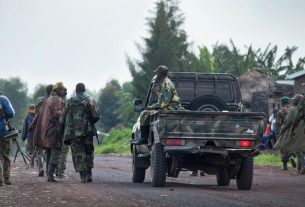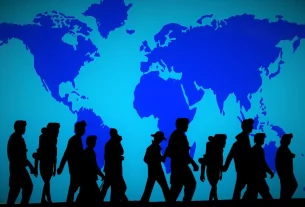WASHINGTON :The United States and Japan on Friday launched a new task force to promote human rights and international labor standards in supply chains and said they would invite other governments to join the initiative.
Tai signed a memorandum on the initiative in Washington with Japan’s Minister of Economy, Trade and Industry Yasutoshi Nishimura.
Japan’s Yomiuri Shimbun newspaper this week cited Japanese officials as saying the move was spurred by issues such as alleged forced labor of minority Muslims in China’s Xinjiang region and the new body will aim to promulgate within Japan regulations that Washington has strengthened to tackle such problems.
U.S. Trade Representative Katherine Tai and Nishimura said they would invite other governments to join the effort.
“The United States and Japan cannot do this alone,” Tai said at the ceremony. “To make this work, we must partner with all relevant stakeholders – worker organizations, businesses, and civil society – to bring about lasting and meaningful change. We must also invite other governments to join us as we push ahead to safeguard the dignity of workers everywhere.”
The signing came ahead of a visit to Washington next week by Japanese Prime Minister Fumio Kishida for talks expected to focus on shared concerns about China’s growing might and other pressing international issues.
Nishimura said on Thursday post-Cold War free trade and economic inter-dependence had bolstered authoritarian regimes, and the United States and like-minded democracies should counter them with a “new world order.”
A senior U.S. official told Reuters last year that U.S. allies appeared committed to following Washington’s lead banning forced labor goods from Xinjiang, while warning companies they could not maintain “deliberate ignorance” about their supply chains.
The United States’ Uyghur Forced Labor Prevention Act (UFLPA) took effect last year to cut U.S. imports of products from Xinjiang, where Washington accuses China of committing genocide against ethnic Uyghurs and other Muslims, and herding them into camps. Beijing denies abuses in Xinjiang.
Tai cited a recent International Labor Organization’s estimate that 28 million people globally were still subjected to forced labor worldwide.
“We must address forced labor at each stage of our supply chains,” she said. “Whether it’s the cotton in the clothes we wear or metals in the cars we drive, such abuses threaten to undermine the very foundations of our system.”
“President Biden has been clear that forced labor must not be tolerated in the United States or anywhere around the world,” Tai said.




Saved as a favorite, I love your blog!